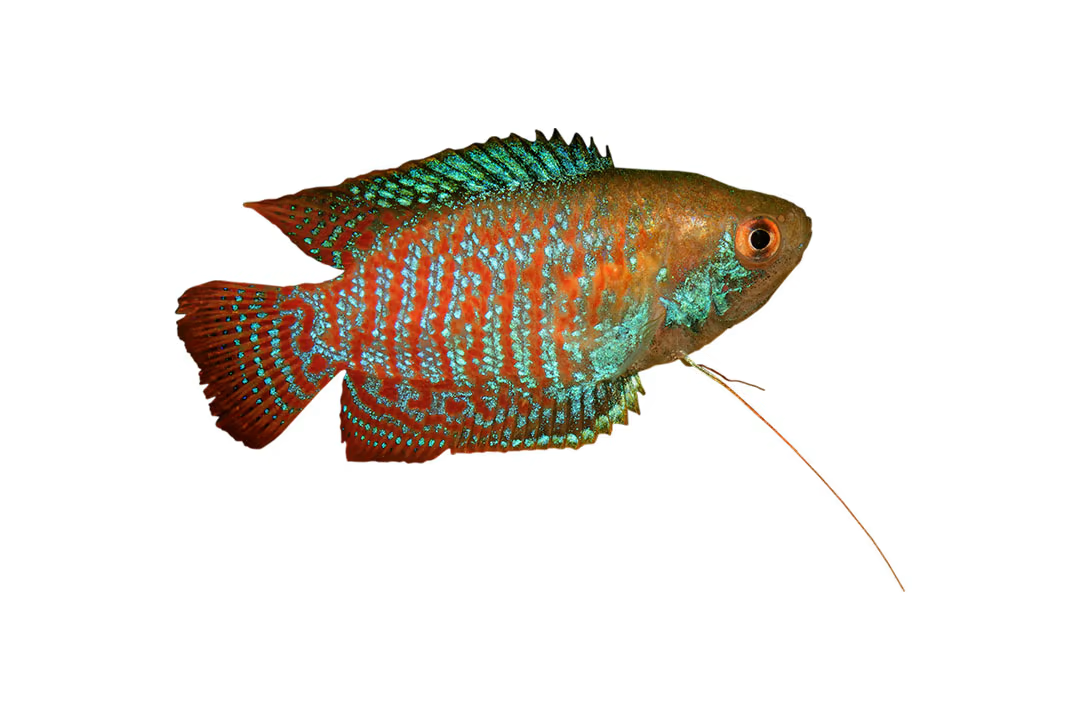Freshwater Community Fish Care Sheet
This care sheet covers a variety of freshwater community species, including:
Table of Contents
Overview
Community aquariums are designed to be a melting pot of a variety of friendly aquatic life species. Although many species come from different regions around the world, freshwater community fish are generally calm and nonaggressive, living in harmony with each other. Freshwater community species contain numerous brightly colored schooling fish. Most of the community fish species are recommended for beginning aquarists.
Typical appearance and behavior
- Schooling fish are happiest and healthiest in odd-numbered groups of five or more of their same species
- Inhabit all levels of the aquarium because of the diversity of species
- Feel more secure when provided plenty of hiding places and territories
- Community fish come in an array of colors and sizes
Characteristics
| Care Difficulty |
Beginner to intermediate, depending on the species |
| Average Life Span |
Depends on species |
| Average Adult Size |
Depends on species |
| Diet |
Omnivore |
| Minimum Habitat Size |
10+ gallons, depending on species |
| Water Temperature |
72-82°F |
Habitat
Habitat size
Keep in an appropriately sized aquarium for the species selected, which can range from 10 gallons for smaller species to a much larger aquarium for schools of community fish.
Building your habitat
Water health -
- Provide proper filtration to ensure optimal water quality to help maintain health. Slow to moderate water circulation should be provided to mimic water currents and high oxygen levels found in various community fish’s natural habitat. Stable water quality (pH, ammonia, nitrate, nitrite) and water temperature are critical to the health of aquatic life. If you are unsure of your water quality, bring a sample to Petco for free testing
- An aquatic heater should be used to stabilize water temperature, ensuring it does not fluctuate more than 2 degrees in either direction in a 24-hour period
- Many community fish species will benefit from the addition of freshwater salt to the aquarium; the specific gravity should be kept at 1.004. Always research your species-specific needs before adding freshwater aquarium salt. Do not allow specific gravity to fluctuate more than 0.001 in either direction in a 24-hour period
Décor- Provide plenty of space for schooling and swimming, as well as plants, rocks or décor for hiding
Feeding
A well-balanced freshwater community fish diet consists of:
- Tropical flakes, pellets, frozen or freeze-dried foods
- Treats, including bloodworms, brine shrimp and mysis shrimp (frozen or freeze-dried)
Things to remember when feeding your freshwater community fish:
- Feed one to two times a day, no more than will be eaten within 1 to 2 minutes
- Thaw frozen food before feeding
Freshwater community fish species care
Maintaining great water quality with regular water changes and adequate filtration is important to help keep your freshwater community fish species healthy
- Daily: Check filter, water temperature and other equipment
- Weekly: Test water quality at least once a week
- Weekly to monthly: Change 10 to 25% of the total volume of water every two to four weeks or as needed; change filter media monthly
Avoid overcrowded conditions, which are a major cause of stress and disease
Where to buy
Various community fish species are available for purchase at Petco online and in –store; availability varies by location. If visiting your local Petco Pet Care Center location, please call ahead to check availability.
Tank mates
Compatible with:
Can be compatible with less aggressive barbs and gouramis.
Health
Signs of a healthy freshwater community fish
- Clear eyes
- Healthy appetite
- Bright, even coloring
- Fins completely intact and undamaged
- Free of parasites or disease
Red flags (If you notice any of these signs, contact your local aquatic specialist or aquatic veterinarian.)
- Loss of color or appetite
- Spots or fungus on body or mouth
- Cloudy eyes or pop-eye
- Frayed fins
- Labored respirations
- Erratic swimming
- Weight loss
- Bloating
- Elevated scales
Notes and resources
Ask a Pet Care Center associate about Petco's selection of products available for the care and happiness of your new pet. All products carry a 100% money-back guarantee.
Because all aquatic life are potential carriers of infectious diseases, such as atypical mycobacterium and salmonella, always wash your hands before and after handling your aquatic life or habitat contents to help prevent the potential spread of disease.
Pregnant women, children under the age of 5, senior citizens and people with weakened immune systems should contact their physician before purchasing or caring for aquatic life and should consider not having aquatic life as a pet.
Go to cdc.gov/healthypets for more information about aquatic life and disease.
The information on this Care Sheet is not a substitute for veterinary care. If you need additional information, please contact your veterinarian as appropriate.

